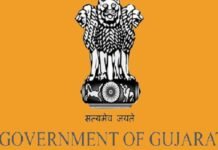In a significant decision, the Delhi High Court held that, particularly when there isn’t a clearly defined contemptor, breaking every court order does not always necessitate the start of contempt proceedings.
The ruling, delivered on August 12, 2025, by a bench of Justices Anil Kshetrapal and Harish Vaidyanathan, came in response to a contempt plea filed by Indian Forest Service (IFS) officer Sanjiv Chaturvedi. He had alleged that the Intelligence Bureau (IB) failed to submit a report assessing threats to his life despite multiple court directions.
The bench stated that the initiation of contempt proceedings is a serious matter and should not be used routinely. Contempt does not always result from disobeying every instruction given by the court. It clarified that contempt proceedings cannot move forward without naming the contemnor, emphasising that contempt cannot be directed against a “nameless office.”
The dispute began in May 2014 when the Director of IB was asked by the Ministry of Environment, Forests, and Climate Change (MoEF&CC) to evaluate the risks to Chaturvedi’s life. When he later sought access to this report under the Right to Information (RTI) Act, the ministry rejected his request. In April 2016, the Central Information Commission (CIC) ordered the IB’s CPIO to submit a copy of the report. The IB challenged this before Delhi High Court, but its appeal was dismissed in August 2017. The agency later moved a division bench in October 2017, where the matter remains pending.
In his contempt plea, Chaturvedi claimed that the IB had wilfully and repeatedly disregarded division bench orders dated July 27, 2023, and August 21, 2024, directing it to submit pertinent records in court. According to him the CPIO neglected to turn in the paperwork, which is why he filed a contempt plea.
While dismissing the contempt plea, the High Court bench made it clear that the division bench considering the appeal has complete jurisdiction to order the disclosure of documents, and that contempt should not be used as a substitute for regular legal remedies. The court also noted that it was difficult to assign liability since no specific contemnor had been identified and the IB does not maintain a publicly accessible website with designated officials. This issue of opacity has been repeatedly flagged in RTI-related disputes.
Wilful disregard for any court order is considered civil contempt under Section 2(b) of the Contempt of Courts Act, 1971, and may result in punishment if proven. The primary appeal will be heard by the division bench of the court on September 10, 2025. The hearing’s conclusion might ultimately determine whether Chaturvedi needs to see the IB report and potentially establish more guidelines for intelligence agencies’ RTI-mandated transparency.



















